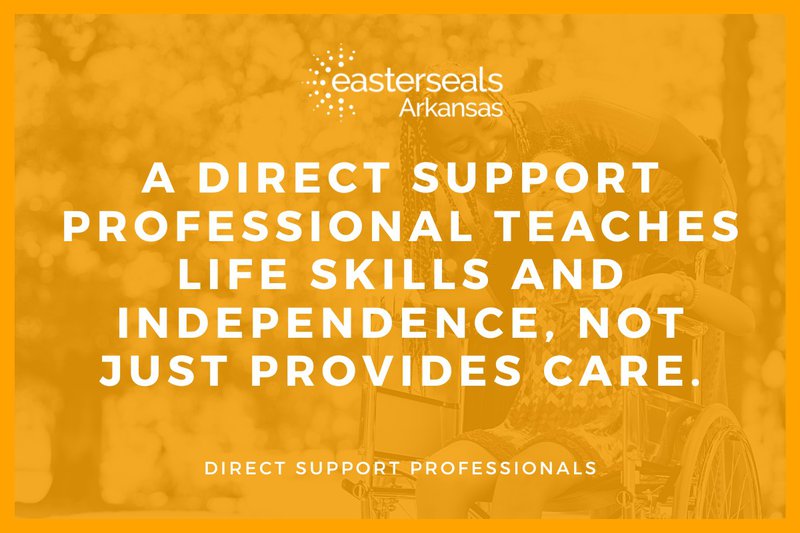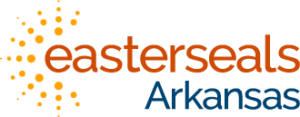
Supporting individuals with disabilities each day requires dedicated and compassionate professionals. A Direct Support Professional (DSP) is essential in your loved one’s daily life. DSPs assist with personal care, learning, and community involvement, contributing significantly to your child's growth. Their role is about more than just support—it's about empowerment. This blog provides clear, honest insights into a DSP's daily responsibilities.
Key Takeaways:
- Daily Tasks: DSPs assist with hygiene, meals, mobility, medication, and home care.
- Role Difference: Unlike caregivers, DSPs teach independence, not just provide care.
- Skills Needed: Empathy, patience, adaptability, communication, and observation.
- Training: CPR, First Aid, HIPAA, de-escalation, and on-the-job or NADSP certifications.
- Certifications: NADSP offers DSP-I to DSP-III; some states require specific credentials.
- Pay and Benefits: U.S. salaries range $28K–$38K annually; CA rates $17–$22/hr; benefits often include healthcare and PTO.
- Career Growth: Options include advanced roles, team leadership, or related fields like nursing.
- Job Search Tips: Use job boards like Indeed or ZipRecruiter; look for paid training roles.
- Challenges: Physical strain, stress, and risk of burnout; safety and self-care are key.
- Ongoing Development: Ethics, training, and professional boundaries are important for growth and compliance.

What Does a Direct Support Professional Do Daily?
Daily Responsibilities of a Direct Support Professional
A Direct Support Professional (DSP) is instrumental in assisting individuals with staying safe, clean, and nourished. Key responsibilities include:
- Assisting with bathing, dressing, and meals, ensuring individuals maintain healthy living habits.
- Providing home cleanliness and order, part of essential daily living activities.
Medical Support and Mobility Assistance
DSPs also play a crucial role in:
- Administering medication at scheduled times.
- Aiding those using walkers or wheelchairs, ensuring safe mobility and comfort in and out of beds or vehicles.
Social and Personal Development
More than just daily tasks, DSPs support meaningful life-building by:
- Facilitating social interactions, shopping, or class attendance.
- Encouraging community involvement, such as joining dance groups or clubs.
Record Keeping and Trust Building
Record-keeping is vital, with DSPs noting:
- Daily care, mood changes, and specific needs to aid doctors and families.
- Tracking progress fosters trust and tailors care to individual preferences. Explore more about building trust and time.
How Does a Direct Support Professional Differ From a Traditional Caregiver?
Empowering Independence
The fundamental difference between DSPs and traditional caregivers lies in the approach:
- DSPs encourage learning and independence, teaching individuals how to manage their own lives.
- Unlike Certified Nursing Assistants (CNAs), DSPs focus on skill-building rather than direct medical care, such as teaching meal planning or bus navigation.
Skill Development and Emotional Support
DSPs extend support by:
- Assisting individuals through emotional challenges or finding appropriate employment.
- Adhering to a unique Code of Ethics, emphasizing respect, choice support, and advocacy.
Ethical Standards and Professional Training
DSPs undergo specialized training, differing from standard caregivers:
- Training includes life skills teaching and behavior support, fostering independence.
- Check out core competencies for more insights into skill requirements.
Qualifications Required for a Direct Support Professional
Basic Requirements
To become a DSP, candidates generally need:
- A high school diploma or GED.
- A clean background and driving record, ensuring safety for those supported.
Training and Certification
Training is crucial and typically includes:
- CPR, first aid, and conflict de-escalation, ensuring the safety of all parties.
- Understanding HIPAA regulations for the protection of private health details.
State-Specific Requirements and Certifications
Regulations vary by state:
- Some demand specific training or licensing.
- In Arkansas, there are specific guidelines for DSPs, including mandatory training and qualifications. For more information, visit Arkansas DHS.
- For in-depth certification, explore the National Alliance for Direct Support Professionals (NADSP) offering DSP-I to DSP-III certifications, elevating expertise and job prospects.
Embarking on a Direct Support Professional Career
Interested individuals can:
- Start by learning on the job, asking questions, and considering certified DSP training.
For those empowered by the mission of fostering independence and community connection, becoming a DSP through Easterseals Arkansas is a rewarding opportunity. Contact us for more information.
Becoming a Certified Direct Support Professional
Pathways to Certification
To become a certified Direct Support Professional (DSP), the National Alliance for Direct Support Professionals (NADSP) provides a structured certification path. It includes three levels:
- DSP-I
- DSP-II
- DSP-III
Completion of each level involves learning essential skills related to care, independence, and safety. Written documentation of work experience may be necessary.
Navigating State Requirements
Certification requirements can vary by location, as some states have distinctive guidelines while others adopt NADSP standards. It's crucial to research state-specific regulations to ensure compliance.
Cost-Effective Training Options
For those wondering, “Can DSP certification be obtained without financial burden?” The answer is yes. Some platforms offer free courses that, while not leading to full certification, provide valuable skills. Additionally, certain employers may cover the costs of the NADSP certification program.
Online Learning Resources
For beginners, online training is an excellent entry point. Platforms like Relias, Elsevier, and Open Future Learning provide self-paced lessons accessible from home.
DSP Apprenticeships
Apprenticeships combine paid work with training, offering an alternative pathway to certification. Supported by many states, this approach has gained popularity due to changes by the U.S. Department of Labor in 2010.
Unique Perspectives of DSPs
Interestingly, some DSPs have disabilities themselves, providing them with unique insights that enhance their care delivery. As demand for DSPs grows, events like those from the LEAD Center emphasize structured training to address staff shortages and career building.
Essential Soft Skills and Qualities of a Direct Support Professional
Core Soft Skills for Success
The role of a DSP demands more than technical training—it requires key personal skills. The most vital are empathy, patience, effective communication, and keen awareness. These skills are integral to providing compassionate and empowering care.
Importance of Empathy in DSP Work
Empathy involves understanding and connecting with the emotions of those supported. By acknowledging and validating their feelings, DSPs can respond appropriately and provide sensitive support.
Patience as a Fundamental Quality
Patience is critical, as progress may vary daily. Allowing individuals the space to try tasks independently fosters growth and self-confidence.
Flexibility in Daily Responsibilities
Adaptability is essential in a DSP's role. Plans may change due to emotional or situational shifts. Flexible responses build trust and comfort.
Importance of Communication
Tailoring communication methods to match individual needs ensures effective interaction. DSPs must also convey essential information to healthcare professionals and families to maintain safe and consistent care.
Observing Behavior for Proactive Care
Observation is key in detecting subtle changes that could indicate broader concerns. Recognizing these signs early helps prevent potential issues.
Learn more about effective DSP practices through Eileen Rendell’s inspiring story.
Core Competencies of a Direct Support Professional
Essential Competencies for DSP Success
Understanding the core competencies vital for DSPs enhances their ability to provide compassionate care. Key areas include empathy, effective communication, and observation, ensuring care is safe, dignified, and personalized.
Direct Support Professional Job Opportunities and Growth
Exploring a Career with Easterseals Arkansas
For those inspired by the mission of fostering independence and community integration, a career as a DSP with Easterseals Arkansas offers fulfilling opportunities. Visit the contact page for more information on training and career prospects.
Understanding the Future Demand for a Direct Support Professional
As the need for support professionals increases, acquiring certification and honing essential skills positions individuals for career advancement. Structured training and commitment to community-focused support open doors for meaningful career paths.
Additional Resources for Aspiring DSPs
Online courses, apprenticeships, and professional networks offer valuable resources for aspiring DSPs. Leveraging these tools enhances skill development and job readiness, supporting a compassionate and empowered approach to care.
Core Competencies and Skills of a Direct Support Professional
Want more insight into the essential skills needed for success as a Direct Support Professional (DSP)? These core competencies highlight the vital areas DSPs focus on to provide empowering and compassionate care. Key skills include empathy, patience, effective communication, and keen observation, which are as crucial as technical know-how. By paying attention to body language and subtle cues, DSPs adapt their approach to meet individual needs, fostering trust and growth. Mastery of these soft skills ensures that care is not only safe but also respectful and empowering. If you're interested in exploring a fulfilling career as a DSP and contributing to community-focused support, learn more about how Easterseals Arkansas is impacting lives. For more information on training and opportunities, visit our contact page to get in touch. Soft skills truly are the foundation of real, impactful care.
